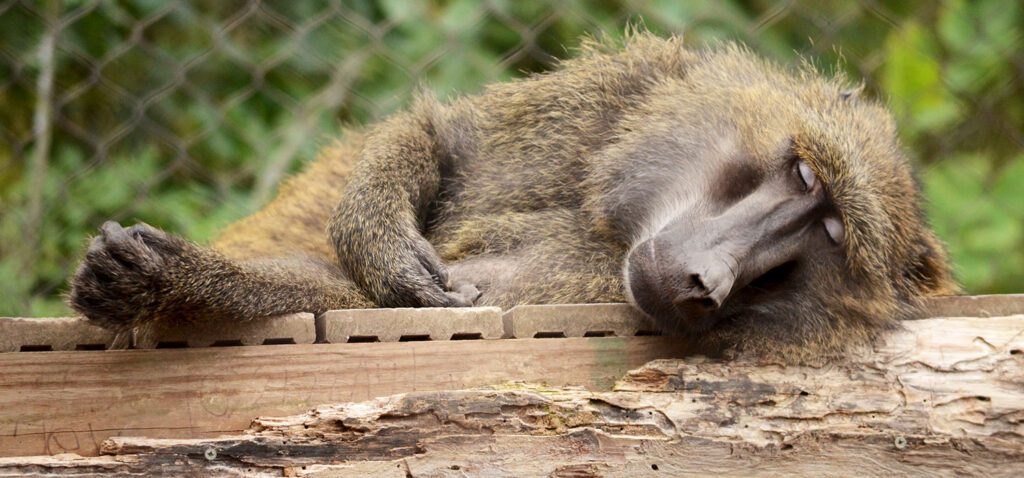Zoo Science
Wildlife biologists, nutritionists, behaviorists, endocrinologists and other specialists at the Zoo use science to save threatened and endangered wildlife.
Baboon Cognitive Studies
A team of University of Rochester scientists led by Assistant Professor Dr. Jessica Cantlon are engaging the Zoo’s troop of Olive baboons in games of puzzle solving and decision making as part of a research initiative to evaluate learning abilities and thought process across the animal kingdom.
Humans display the unique ability to use language and symbols. However, non-human primates (prosimians, monkeys and apes) possess many complex conceptual skills despite the fact that they lack natural language abilities.
“Our research team is interested in identifying the cognitive abilities that distinguish humans from other primates as well as those that all primates share, whether human or non-human,” explains research associate Allison Barnard. “Our lab is especially interested in the origins of conceptual abilities such as math, music and logic.”
We are currently testing baboons’ abilities to:
Choose the larger number from two packages of fruit.
To use a spatial map to find a hidden fruit.
To learn logical rules and to discriminate pitch from different melodies.
We are interested in understanding whether baboons share some basic aspects of our human conceptual profile despite the fact that they lack language abilities, as well as what baboon cognition can tell us about child development. For example, we will examine the extent to which the conceptual abilities of young children who have not yet mastered language show similarity to the primitive abilities of baboons. Human children might be born with the same cognitive capacities as other primates, but change radically as they learn human language and culture.
We are also investigating how genetic and environmental factors have shaped particular cognitive abilities over evolutionary time. We will compare the baboons’ performance on a variety of tasks to the performance of many other animal species including great apes, lemurs, capuchin monkeys, sparrows, squirrels, mice and many more. These species are all quite different from one another yet many of them have a few things in common, such as what they eat, the sizes of their groups or where they live.
We are interested in whether certain cognitive abilities are more likely to be shared by two different species when they have something in common. By comparing cognitive abilities across all of these different species, we can determine whether a particular cognitive ability is likely to emerge in a species that has the same group size, social structure, diet, terrain or predators.
These studies will help us understand the precise causes of complex conceptual skills in animals.
For more information on how other scientists are studying primate thought processes and decision making, check out the Smithsonian Institution’s “Think Tank” at the National Zoo in Washington D.C.

